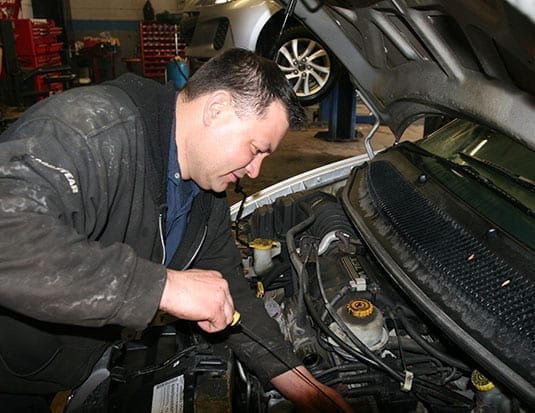The warning signs have been all around us for many years!
Our industry has a major shortage of skilled technicians—a problem that’s growing at an alarming rate. My shop had a licensed technician that quit because he decided he’d rather be a sheet metal technician in the heating and cooling trade.
As a result, we’ve been advertising for a new technician. Only four applicants have applied. We offered two applicants the position only to find out three other shops were also making offers to them. Both applicants decided to accept offers from another shop.
The lesson learned is that if you’re a good technician, you have many options to choose from—your skills are now in high demand and due to the technician shortage, the value of your skills has increased dramatically. This situation is very good for the technician—not so good for smaller shop owners who may not have the resources to win the bidding war. I’m happy for the technicians because for decades, automotive technician wages have been too low and, as a technician, I think it’s about time this change is happening.
Good for technicians
The technician shortage will lead to higher wages for good technicians; higher shop rates can pay for the higher wages, but smaller shops that can’t keep pace with this trend will likely close. The more progressive shops will be in higher demand and able to afford the long overdue higher wages. The huge problem with this scenario is there will be a five- to ten-year gap between the demand for technicians and the supply of those needed technicians.
Politicians, educators, parents, shop owners and all automotive industry stakeholders must act quickly to recognize and solve this problem.
Another challenge
Another major challenge affecting the supply of qualified technicians is the changing habits of the younger generations entering the workforce. It takes several years to progress from an apprentice to a skilled technician. Today workers are changing jobs and changing fields in which they work every few years.
A few decades ago, workers would stay in the same occupation for most of their working years and change jobs maybe once or twice during that time. According to the U.S. Department of Labor, the average person will change careers five to seven times. With the ever-increasing and newly-developed employment sectors and career choices, approximately 30 percent of the workforce will change jobs every 12 months. By the age of 42 the average worker may have changed jobs 10 times!
Delayed career choices
Younger generations are entering the workforce later in life. Many aren’t choosing or focusing on their career choice at the young age many of us now between the ages of 40 and 55 did. Years ago, high school students were encouraged to choose their career path early and start planning the training and educating needed to succeed at that plan.
Jeff Oakes, head of the Automotive School at Guelph’s Conestoga College, observed that although the numbers of apprentices registered in the program remain high, the level of knowledge and preparedness is getting lower amongst new students.
Automotive service shop owners have a challenge to find and train the next generation of technicians, and it’s going to be difficult and frustrating. Together I hope we can face this challenge and succeed in finding solutions. I’m interested to hear your thoughts!



